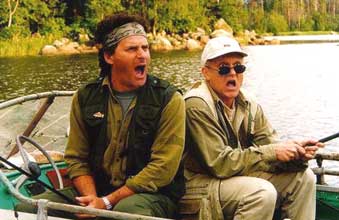AT THE BEGINNING OF START. HOW VENTURE INDUSTRY IS FORMED IN RUSSIA
 “Somehow I was present at the discussion of one startup. The head at that moment was filled with problems of my own business, and I did not respond to the results of the presentation. As a result, my colleague, who invested $ 100,000 in this project, received almost $ 100 million at the output, ”Alexander Galitsky sighs with regret. It was one of those rare occasions when an IT guru let down his instincts.
“Somehow I was present at the discussion of one startup. The head at that moment was filled with problems of my own business, and I did not respond to the results of the presentation. As a result, my colleague, who invested $ 100,000 in this project, received almost $ 100 million at the output, ”Alexander Galitsky sighs with regret. It was one of those rare occasions when an IT guru let down his instincts.
Alexander – Sasha, as he is called in the community – Galitsky founded several IT companies. He managed to attract investment from Western venture capital funds, and then partially sell the business to industry leaders such as Sun Microsystems and Telenor.This is a textbook case of a business venture. It usually happens, and most often in the United States. But Galitsky managed to do it in Russia in the 1990s.
Today, he is not engaged in technology development, and investment in them. “After 13 years of entrepreneurial activity, I earned money, experience, and decided to start investing in an IT field close to me,” says Alexander. Fortunately, there are much more opportunities for this than it was 15 years ago.
First step
In Russia, as in the rest of the world, the main inflow of venture capital is now flowing into information technology. The industry was lucky by several parameters. First, the investors here are people who grew up in the IT environment, that is, they are able to evaluate the project and believe in it at the idea stage. Other businesses, such as biotechnologies, which are also considered potentially promising for creating new developments, are much more difficult. Russian chemists and biologists who are able to derive the formula for an avian flu vaccine, or at least an improved antibiotic, rarely turn out to be good entrepreneurs. Commercial companies created by biotechnology specialists can be counted on the fingers, and the vast majority of them are still at the stage of startups or intensive development. In the pharmaceutical industry, only one person managed to fully build an innovative business and successfully sell it. So, until the time when biotechnologists become investors, who are ready to finance other people’s projects, it is still far away.
Secondly, the startup period in the IT industry is relatively short – the idea (especially in Internet projects) can be implemented in six months or a year, and a year or two after launch, the business is already starting to generate a positive cash-fl ow. It takes at least a few years to create a new chemical compound with the required properties, and as many more to prepare the development for industrial production. In pharmaceuticals, the timeline for venture investment in general is almost unreal: a new drug, according to Pharmexpert, estimates that it takes about 10 years on average, and then it takes another two or three years to test a new drug and obtain the necessary permits to bring it to market. Therefore, neither an angel, nor a devil, nor a financier, nor a strategist will give money to developers at the idea stage – unless the government or grants of scientific funds can help. In biotechnology, financing is possible to attract only under the already ready, at least minimally tested and patented development.
However, to start up startups on their own savings, loans secured by an apartment, money collected from relatives, friends and acquaintances, characteristic of the authors of ideas from any industry. Around the world, the rule of three F for startups is valid: initial funds are taken from three sources – friends, family and … fool. Startups are rarely funded from a single source. The most common scheme is the own funds of the authors of the idea, then business angels (professional or just investors-enthusiasts), at later stages – venture funds or major players in the industry. At the same time, every time it becomes easier to find financing, and participation, even minimal, in a project of one investor is a signal to others that prospects are worth the risks.
Finally, the costs of implementing projects in different industries vary significantly. A few hundred thousand dollars will be enough for the development of, say, a new Internet service (the most common amount of investments in startups at the moment in Russia). At the same time, the creation of oncological pharmaceuticals will not be enough and several million. However, there are exceptions everywhere. A project in the IT sphere can cost $ 10–20 million, and it is possible to spend $ 100–200 thousand to carry out clinical trials almost ready to enter the market of drug development still in Soviet times.
Translation difficulties
“The main task of a financier in a startup is not to make a competent business plan at all (most likely, neither the project founder, nor the one who invests the money will pay attention to it, and no one will probably do it), but the potential investor will not like it . That is, to convince him that the developer’s idea is not only brilliant, but also commercially viable, ”explains Pyotr Gushevsky, CFO of the St. Petersburg company laterF, which develops and manufactures original dietary supplements and chemical additives.




